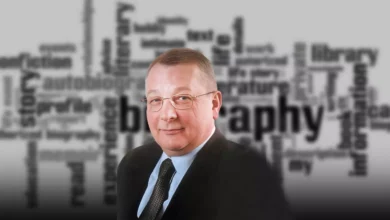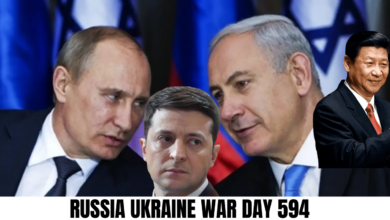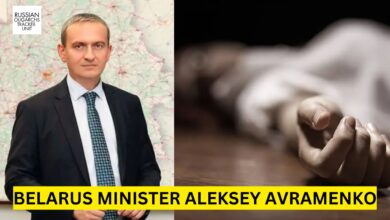Yuri Borisovich Milner Controversies: From Russia to Silicon Valley’s Wealthiest Billionaire
Yuri Borisovich Milner, born on November 11, 1961, in Moscow, is a Soviet-born Israeli entrepreneur, investor, scientist, and physicist. He is known for his input into the Internet industry and his contemporary investing methods.
However, besides all the good that Yuri has offered, there is more to the story.
Early Life and Education
Yuri Borisovich Milner is from a Jewish family, and his father, Bentsion Zakharovitch Yuri Milner, worked at the Institute of Economics as a Chief Deputy Director. As a young adult, he attended evening classes at Moscow State University to study computer programming.
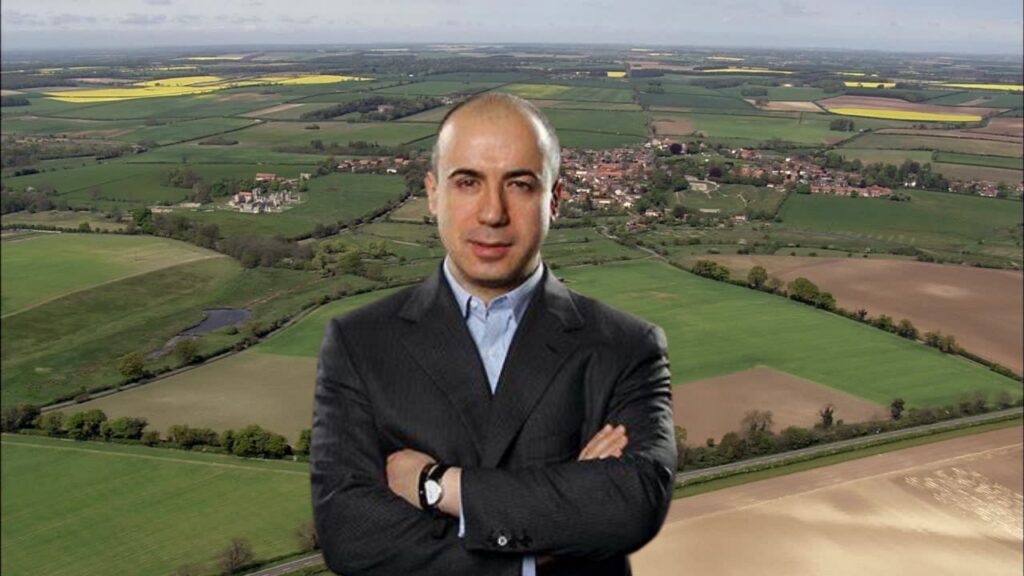
Subsequently, he received a degree in theoretical physics from the same institution. Before pursuing a career in business and finance, Yuri Milner earned a doctorate in particle physics and worked as a researcher in the field.
Career
Yuri Borisovich Milner Milner worked for powerful tycoon Mikhail Khodorkovsky’s Alliance-Menatep brokerage business in the mid-1990s, looking for a position in post-Soviet Russia’s growing capitalist economy.
He, along with other investors, purchased a macaroni producer in 1998 and turned it into a profitable company. He co-founded and served as chairman of the online startup Mail.Ru Group (now VK). He also founded the investment firms Digital Sky Technologies (DST) and DST Global, which have made investments in businesses such as Byju’s, Facebook, and Wish.
Personal Life
Yuri Milner is married to Julia Yuri Milner, a former high fashion model, contemporary artist, and photographer. They both got married in 2004 and have two daughters.
The couple resides in Los Altos, California.
Julia is an artist, and Yuri Milner’s office is oftentimes is filled with her paintings and photographs.
Another of Yuri Milner’s interests is in science and philanthropy and he is the founder of the Breakthrough Prize Foundation, which awards prizes to scientists, mathematicians, and physicists for their outstanding contributions to their fields.
International Journey and Financial Profile
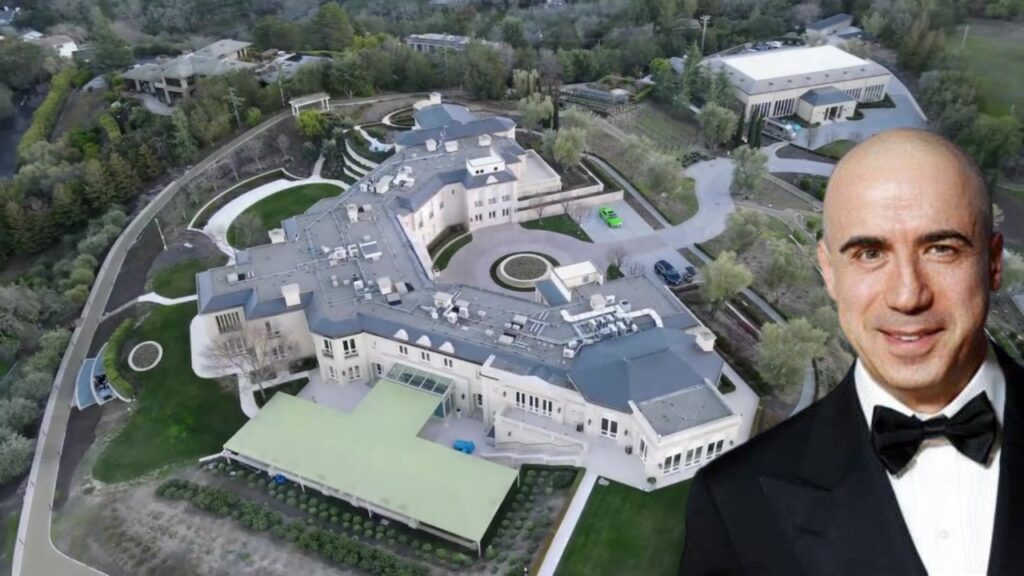
Between 1992 and 1995, he was employed at the World Bank in Washington, District of Columbia. Since 1999, he has had the citizenship of the Israeli state. It was in 2005 that he relocated his family to Israel, and it was there that his first two daughters were born.
In 2011, he purchased a home in the United States’ Silicon Valley. In 2014, he relocated his family to the state of California, and there his third daughter was born. Currently, the whole Yuri Milner family lives in California, including his mother.
Since 2014, he has not been in Russia at any point. Also, since 2011, he has not been considered a tax resident of Russia.
He does not own any assets in that country. Yuri’s personal fortune is comprised almost entirely (97%) of money that was earned outside of Russia.
Yuri Borisovich Milner Controversies
Initial Financial Support from Sources Connected to the Kremlin
Yuri Milner amassed a fortune of $3.9 billion, owing in large part to early backing from people tied to the Kremlin.
Since then, Yuri Milner has established some distance between himself and Putin and has relinquished his Russian citizenship, with the process being completed in August 2022.
Capital Contributions to Facebook and Twitter
Yuri Milner’s investments in Facebook and Twitter have been the subject of controversy owing to allegations that they are connected to Russian propaganda operations that took place during the 2016 presidential election in the United States.
Cash from Kremlin
There are leaked documents that reveal Yuri Milner’s investments in Facebook and Twitter were ‘hundreds of millions of dollars’ from the Kremlin.
VTB, a state-controlled Russian bank used for strategic deals, supported the Twitter investment.
Another government-monitored financial institution, Gazprom Investholding, supported the deal in terms of investments in Facebook. The documents include a cache of records from the Bermuda law firm Appleby.
Eventually, Yuri Milner’s companies came to own more than 8% of Facebook and 5% of Twitter, placing him on several lists of the world’s most powerful businesspeople.
Although he sold the holdings several years ago, he retains investments in several other large technology companies and continues to make deals.
The latest reports say that he made investments in a real estate venture called Cadre, partly owned by Jared Kushner, President Trump’s son-in-law and White House adviser.
Many social media platforms, like Facebook and Twitter, have become a major focus of federal investigations into Kremlin interference in the 2016 election. Federal prosecutors are witnessing how Russians linked to the Kremlin turned the sites into ‘garden hoses of bogus new stories’ and if they coordinated with the Trump campaign.
In an interview, Yuri Milner said that the ‘Russian government money was no different from the financing he had received from his many other investors around the world.’
Yuri Milner has said that he had nothing to do with the marketing campaign and that the money he got from the Russian government was the same as the money he got from his many other sponsors around the world.
These controversies have put pressure on Facebook and Twitter to give a full and transparent account of their interactions with Moscow entities before and during the US election.
Included in the Paradise Papers
The Paradise Papers, which are a leak of financial papers that disclosed the offshore interests of affluent individuals and corporations, include Yuri Milner on the list of those whose names appear in the publication.
Yuri Milner’s response to the allegations
He has denied any political motives behind his tech investments, claiming that they were solely based on business merit. Yuri Milner expresses his concerns about the impact on the Russian-American community.
A Letter from Milner
Here’s a letter from Yuri Milner where he explains it all –
“Social media, the 2016 election and being Russian
An open letter from technology investor Yuri Milner
For me, America has always lived up to its promise. Back in Russia in the late eighties, struggling to pay the rent despite working two jobs, I imagined this country as a land of opportunity. And that’s exactly what I found when I came here. The biggest difficulty I’ve faced as a Russian has been missing borscht.
When I came for an interview at Wharton Business School in 1990, the director of admissions had every reason to turn me away. I didn’t have the qualifications. I certainly didn’t have $29,000 a year in tuition and expenses. And until that year, no Soviet student had ever been granted a place at a US business school. But he took a chance on me, and 27 years later, I was honored to give the commencement speech there. A few years ago, when I settled with my family in Silicon Valley, I found a community that didn’t care where you came from, only who you were and what you had to offer.
Since the 2016 election, however, there has been a change in the air. Just to be Russian, suddenly, is to be under suspicion.
In recent weeks, questions have been raised about me and DST Global, the investment firm that I founded, in connection with Russian attempts to influence the US election. Because of our investments in Facebook and Twitter, and the early investment in our fund by a state-owned Russian bank, our integrity has been publicly doubted. The implication is that – being Russian – my motive for these investments was not to make a financial return but to gain influence over social media. I have even been grilled as to how many times I met with Mark Zuckerberg, and what we discussed – as if every exposure to Russianness put him at risk of infection.
Another transaction that has attracted attention is my personal investment in Cadre, a company associated with Jared Kushner. But the stake in question was very small – a fraction of 1% of the total funds raised. This investment, like any other, was made on a purely commercial basis. It no more implies a personal relationship with Mr. Kushner than buying some shares in Walmart gets you invited to Thanksgiving with the Walton family.
Because these suggestions are so far-fetched, it’s hard to take them seriously. But the events surrounding last year’s election are a serious matter indeed, and having grown up behind the Iron Curtain, I have a particular appreciation for democratic institutions. That is why I am making my response public with this letter.
The idea that we were working on Russia’s behalf to turn social media against US democracy is a fairy tale for many reasons. One, the timescale: our initial investment in Facebook was in May 2009, a time when U.S.-Russian relations were very different, just after Hillary Clinton visited Moscow to press the “reset” button, and we divested from both Facebook and Twitter in 2013–2014, well before the US election.
Two, the method: these deals gave neither DST Global nor its investors any influence or control over the activity of the companies we invested in. Three, the context: the Russian bank (which invested back in 2011) comprised less than 5% of our funds and was just one of a number of state-owned institutional investors from around the world. And by the way, accepting funding from a Russian bank does not automatically make you a Kremlin agent.
In actuality, pure business logic based on a decade of experience in Internet technology drove DST Global’s investments in Silicon Valley. In the 2000s, I helped grow Mail.ru into one of the largest Internet companies in Europe. Later on, together with partners from Finland, Ireland, India, and Singapore, we built DST Global. In 2009, after an exhaustive analysis of many social media networks worldwide, we determined that Facebook was an attractive investment opportunity, which proved to be correct.
Anyone who is familiar with the Internet technology sector will find it hard to believe that political considerations were the driving force behind all of this work. Tech investing has its follies, but it’s not such a simple game that consistent above-market returns can be generated at will as a cover for some nebulous long-term goal.
And if this had all been an influence operation, we would surely have sought some control over the companies. Yet when we negotiated the Facebook and Twitter deals, we asked for no board seats and assigned all our votes to their founders, figuring they knew best how to run their companies. At the time, this structure was unusual, but it is core to DST Global’s philosophy. After Facebook and Twitter, we went on to make more than 30 other investments in companies including Airbnb, Spotify, and Alibaba, each based on many months of data-gathering, nnumber-crunching,and due diligence. That’s a lot of trouble to take for an alibi.
DST Global had fully divested our positions in Facebook by 2013 and Twitter by 2014, following their IPOs. Again, winding up our investments in these companies so early would seem a suboptimal way to utilize them in an election that was still years in the future.
We were also accused of not disclosing the Russian bank as one of DST Global’s limited partners to our portfolio companies as if it were some sort of state secret. However our critics fail to appreciate that it is normal practice in venture capital funds not to disclose limited partners. And this is the practice we have followed not only in the case of Facebook and Twitter but in over thirty other investments we have made.
To sum up: the theory that we made these investments to influence social media makes no logical sense, in terms of either motivations, actions, or results. Only a worldview that sees my nationality as inherently suspicious could find such a fairy tale compelling. It is unpleasant to experience guilt by association, and frankly scary for my children to face suspicion in school on the grounds that their parents are Russian.
But it is also worth thinking about the broader effect of this kind of worldview. There are over three million self-identifying Russians living in America. Thousands work in Silicon Valley, including the founders of some of the most iconic American technology companies. Because many Russians have historically been drawn to science and technology, to be suspicious of anyone with connections to both Russia and tech firms is to cast a very broad net.
When I think of Russians in America, I think of people like Vladimir Zworykin, who developed the technology behind the television; Igor Sikorsky, who pioneered the helicopter; George Gamov, one of the key minds behind Big Bang theory; and brilliant contemporary scientists like the theoretical physicists Alexei Kitaev, Andrei Linde and Alexander Polyakov, or the biochemist Alexander Varshavsky.
The latter four are all winners of the Breakthrough Prize, the world’s biggest science award, which I co-founded in 2013. My passion for science also led me to invest in space missions like Starshot, the first serious attempt to design an interstellar probe. We expect Starshot to take around 20 years to build and another 20 years to reach the nearest star. That is the kind of long-term plan I am interested in. Like any research program, it could fail. But it is a lot more likely to succeed than attempting to control the course of complex political events nearly a decade in advance through passive investments in tech platforms.
The essence of the scientific search for truth is not just inventing a theory but subjecting it to systematic doubt. It is not enough to connect a few data points and declare a causal explanation. You have to question your assumptions and biases. This approach is alien to conspiracy theorists: the only explanation they are skeptical of is the simplest one—in this case, that investments can be made on business merits only. Even by a Russian.”
Assets

Yuri Milner bought a home in Los Altos Hills, California, for $100 million in 2011. The property is made up of three plots that add up to seven hectares. It has a main house that is about 25,500 square feet (2,370 square meters) and a guest house that is about 5,500 square feet (510 square meters). The tax bill is currently about $304,000 per year. The price was said to be $100 million, which was the most anyone had ever paid for a single-family home in the U.S. It is estimated that the land is worth $50 million.
In a fact sheet put out by him on March 24, 2020, he talked about his and DST Global’s relationship with Russia.
A magazine company admitted its mistake by saying that DST Global was not a Russian Company.
Final Words
Silicon Valley tycoon Yuri Milner has been tied to various controversies, however, he denies all the wrongdoings in his own words.
When Russia annexed Crimea in 2014, Yuri Milner claimed in a tweet that he and his family “left Russia for good.” When Russia attacked Ukraine earlier this year, DST Global condemned “Russia’s war against Ukraine, its sovereign neighbor,” and his fund spoke out against “unprovoked and brutal attacks against the civilian population.” Yuri Milner said that he stood by what he had said.
He vehemently denies any political motives and asserts that his investments were based on business merit.




